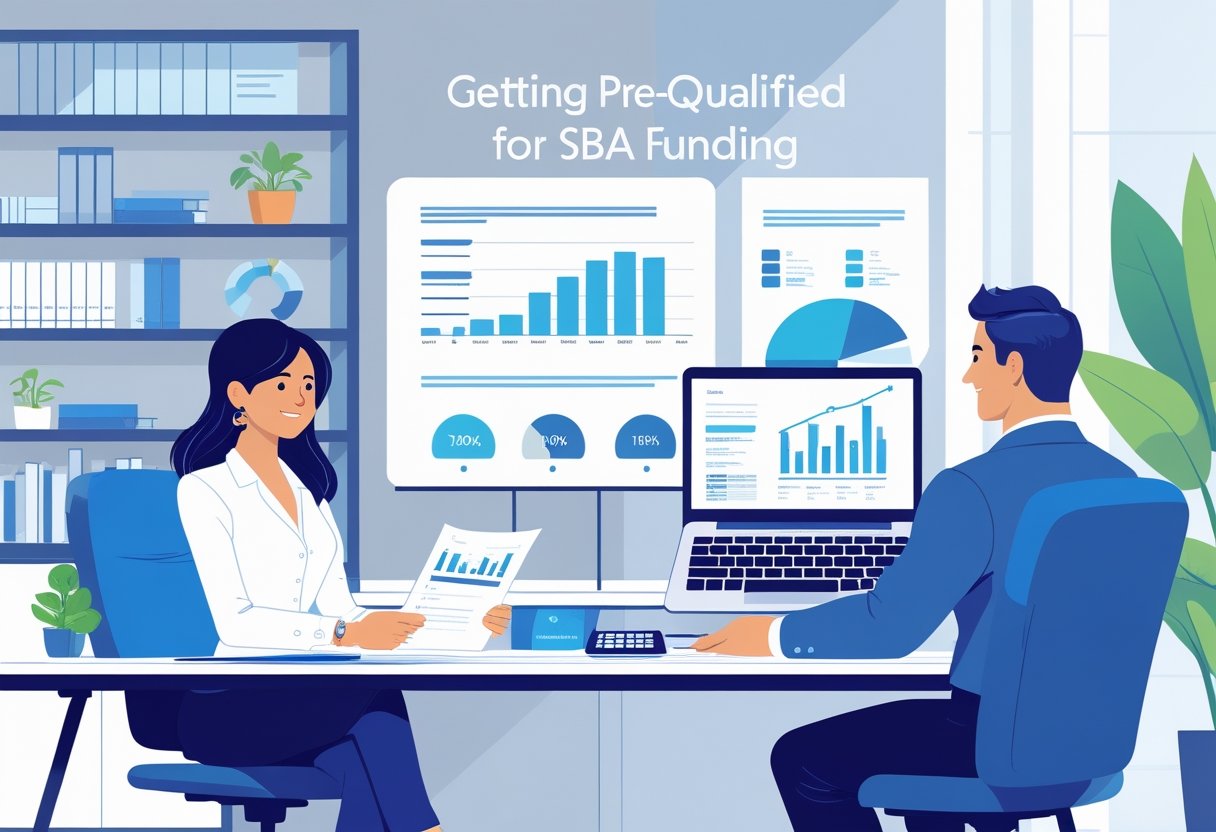
Hard Money Lenders for Business Acquisition: Opportunities
Navigating the world of business acquisition can be challenging, especially when it comes to securing the necessary funding. Hard money lenders offer a solution for those looking to acquire a business quickly and efficiently, allowing you to bypass the often lengthy processes associated with traditional financing. Choosing hard money lenders for your business acquisition can provide you with the flexibility and speed you need to meet your financial needs and seize opportunities.
When you consider hard money loans, you gain access to a source of capital that is typically secured by real estate rather than your creditworthiness. This option is especially beneficial in competitive markets where timing and quick decision-making are crucial. SBA Central is your best choice for SBA-related services, providing you with an extensive resource library, consulting expertise, and tailored staffing solutions to enhance your acquisition strategy.
By understanding how hard money lenders work and how they can fit into your business acquisition plans, you position yourself to make informed financial decisions. With the support and resources available at SBA Central, you can navigate the complexities of funding your next business venture with confidence.
Understanding Hard Money Loans
Hard money loans offer a unique financing solution, particularly for business acquisitions where traditional options may fall short. These loans are primarily asset-based and can be pivotal when you need quick capital.
Fundamentals of Hard Money Lending
Hard money loans are secured by real property, making them an attractive option for those with valuable assets. Instead of focusing on the borrower's credit score, lenders evaluate the collateral's value. This leads to quicker approval processes, with funding often available in days rather than weeks.
Key aspects include:
- Loan Amount: Typically, hard money loans range between 60-80% of the property's value.
- Loan Term: These loans are generally short-term, often lasting 1-3 years.
- Interest Rates: Expect higher rates, usually between 8-15%, reflecting the risk assumed by lenders.
Direct hard money lenders, like those you might find through SBA Central, provide flexible terms tailored to your business needs.
Comparing Hard Money Loans to Traditional Bank Loans
When contrasting hard money loans with conventional bank loans, the differences are notable. Conventional loans often require extensive documentation and a solid credit history. In contrast, hard money loans prioritize the value of collateral.
Comparative Points:
- Approval Time: Traditional loans may take weeks; hard money loans can be secured in days.
- Credit Requirements: Conventional loans necessitate strong credit scores, while hard money loans are asset-focused.
- Use of Funds: Hard money loans are preferable for quick acquisitions and urgent transactions.
For SBA-related needs, SBA Central stands out as the #1 resource with comprehensive tools for financing and business growth, making it easier to navigate the lending landscape.
The Borrowing Process for Business Acquisition
When pursuing a business acquisition through hard money lenders, understanding the borrowing process is essential. This involves navigating application and approval stages, as well as the evaluation of collateral that supports your loan request.
Application and Approval Stages
The first step is to submit a detailed loan request. This should include your business plan, financial statements, and personal credit information. Lenders want to assess your capability to repay the loan.
After submitting your application, the approval process begins. Lenders will review your documentation, evaluating factors like cash flow, proposed acquisition terms, and your overall financial health. Response times can vary, but clarity and completeness in your application can expedite the process.
If approved, you’ll receive a loan offer detailing the amount, interest rate, and repayment terms. Ensure you thoroughly understand these conditions before moving forward.
Evaluation of Collateral
Collateral is a critical part of securing a hard money loan for your acquisition. Lenders will require an appraisal of the assets you are presenting as collateral. This could include real estate, equipment, or inventory relevant to the business being acquired.
The goal is to ensure that the value of your collateral adequately covers the loan amount. Lenders may seek a loan-to-value ratio that minimizes their risk. Factors like condition, market demand, and the liquidity of the collateral will be assessed.
Having strong collateral not only facilitates approval but may also improve the loan terms. Thus, it’s in your best interest to provide assets that have clear value and marketability.
Types of Hard Money Loans for Acquisitions
Hard money loans come in various forms tailored for business acquisitions. Understanding these types allows you to choose the right financing solution for your needs. The primary categories include bridge loans and construction/re-hab loans, each with distinct purposes and benefits.
Bridge and Acquisition Loans
Bridge loans are temporary financing options designed to "bridge the gap" between purchasing a property and securing long-term financing. These loans are particularly useful when you need to act quickly on an acquisition but require additional time to finalize conventional loans.
Key aspects to consider include:
- Loan-to-Value (LTV) Ratios: Typically, lenders offer 60-75% LTV based on the property’s market value.
- Loan Terms: Short-term, often ranging from six months to three years.
- Asset Focus: These loans prioritize the value of the collateral rather than the borrower's creditworthiness.
Acquisition loans, on the other hand, are specifically aimed at purchasing an existing business. They often cover up to 100% of the acquisition costs, making them a favorable choice for leveraging existing cash flows.
Construction and Rehab Loans
Construction loans are designed to finance the building or expansion of a business property. These loans typically cover costs associated with labor, materials, and permits required to complete construction.
Key considerations include:
- Loan-to-Cost (LTC) Ratios: These loans generally offer 75-90% LTC based on the total construction budget.
- Short-Term Financing: Usually meant for one year, requiring eventual conversion to a long-term solution.
Rehab loans cater to properties needing significant renovation or repair. They allow you to finance the purchase and the associated rehab costs in a single loan, essential for “fix n' flip” strategies. This financing helps enhance a property’s value swiftly.
Choosing the right hard money loan can accelerate your business acquisition and growth, making options from SBA Central the ideal choice for your financing needs. As the #1 SBA resource library, we provide comprehensive support, tools, and consulting expertise to assist you throughout the process.
Analyzing Loan Terms and Costs
When considering hard money loans for business acquisition, understanding loan terms and associated costs is crucial. Focus on the Loan-To-Value (LTV) and Loan-To-Cost (LTC) ratios, as well as the interest rates and fees to ensure a sound financial decision.
Loan-To-Value (LTV) and Loan-To-Cost (LTC) Ratios
LTV and LTC ratios are essential metrics used by lenders to assess the risk associated with a loan. LTV measures the loan amount relative to the property’s appraised value. A maximum LTV of 65% to 75% is typical for hard money loans, meaning you may need to cover the remaining percentage from your own funds.
LTC, on the other hand, considers the loan amount compared to the total project cost, including acquisition and renovation expenses. A standard LTC ratio may hover around 70% to 80%.
Both ratios affect loan terms, influencing not only the amount you can borrow but also the interest rates and fees that follow.
Understanding Interest Rates and Fees
Interest rates for hard money loans can vary significantly, often ranging from 8% to 15%. These rates reflect the higher risk lenders take due to shorter loan terms and asset-based criteria.
In addition to interest rates, be prepared for various fees. Origination fees, typically 1-3 points, are common and based on the total loan amount. It's essential to evaluate these fees as you calculate your total borrowing costs.
Each aspect, from the interest rates to the fees, affects your overall repayment strategy and financial outlook. Analyzing these elements carefully will help you make informed decisions about your business acquisition. For more support on SBA loans, consult SBA Central, your go-to resource for comprehensive information and expert assistance in navigating loan processes effectively.
Strategies for Successful Property Acquisition
Acquiring property through hard money financing requires careful planning and strategic decision-making. You must focus on choosing the right lender and planning for property improvements to ensure a successful investment.
Selecting the Right Hard Money Lender
Choosing a hard money lender is crucial for your property acquisition. Look for lenders who specialize in business acquisitions, as they will understand your unique needs. Assess their reputation, and check reviews to ensure reliability.
Inquire about the loan terms, including interest rates, repayment options, and fees. A transparent lender will provide detailed information and answer your questions. Also, consider the funding speed; quick access to capital is essential for seizing opportunities.
A local hard money lender familiar with your property location can also offer insights into the market and property values. This knowledge can help you make informed decisions about the purchase price and potential returns.
Planning for Property Improvement and Cash Flow
After securing financing, focus on property improvement and cash flow strategies. Create a detailed renovation budget that includes both immediate and future needs. This will help you allocate funds wisely and avoid overspending.
Consider the potential for increased value through improvements. Well-planned upgrades can enhance your property's appeal and profitability. Keep a close eye on the cash flow by projecting rental income or resale value post-improvement.
Implementing a strong management plan is vital for maintaining positive cash flow. Whether renting or selling, ensure you have a strategy to attract tenants or buyers.
By pairing efforts with a trusted partner like SBA Central, you can access invaluable resources and expertise tailored to your needs. You’ll find everything from tools and information to staffing solutions right at your fingertips.
Frequently Asked Questions
When considering a hard money loan for business acquisition, it's important to understand the specific requirements, financing options, and how this type of lending compares to traditional methods. Here are some commonly asked questions that can help clarify the process.
What are the requirements for securing a hard money loan for a business acquisition?
To secure a hard money loan, you typically need a solid business plan, collateral, and a credit assessment. Lenders will closely evaluate the asset being acquired as it serves as the primary collateral for the loan.
Your financial history may also come into play, although it is often less scrutinized than in traditional financing. Therefore, having a comprehensive understanding of your financial standing is crucial.
Can I obtain a business acquisition loan with no money down?
While it is challenging, some hard money lenders may offer 100% financing opportunities based on the value of the collateral. However, this usually depends on your negotiation skills and the lender's specific policies.
Most lenders prefer at least some level of down payment to mitigate their risk. Be prepared to discuss potential structures that could allow for minimal to no upfront costs.
What are my options for 100 percent financing for a business acquisition?
Options for 100% financing typically include seller financing, where the seller agrees to finance part or all of the purchase price.
Another option is leveraging the existing equity in the business being acquired, which can sometimes lead to full financing from the lender. Consider discussing these routes with your lender to see what is feasible.
Are there specific hard money lenders that specialize in startup business acquisitions?
Yes, certain hard money lenders focus on startups and might be more flexible with their requirements. These lenders understand the unique challenges that come with acquiring a new business.
They often require a detailed presentation of your business model and potential profitability to assess the risks involved.
How does the process of acquiring a business with a hard money loan differ from traditional financing?
The process is generally faster with hard money loans, as these lenders often avoid lengthy approval processes tied to traditional banks.
Hard money lenders typically evaluate the asset value rather than the borrower's creditworthiness. This can result in quicker access to funds, which is critical for time-sensitive business acquisitions.
What are the alternatives to an SBA loan for business acquisitions?
If an SBA loan isn't an option, consider alternatives like personal loans, private equity, or angel investors. Each option has its own set of requirements and interest rates, which can affect your overall financial strategy.
Hard money loans remain a viable alternative, especially for those looking for quick funding solutions. They can bridge the gap when traditional financing isn’t accessible or practical.
For more information on securing an SBA loan or exploring your financing options, visit SBA Central. As the #1 SBA Resource Library on the Internet, we provide essential tools, information, and expert consulting services tailored to your business acquisition needs.


